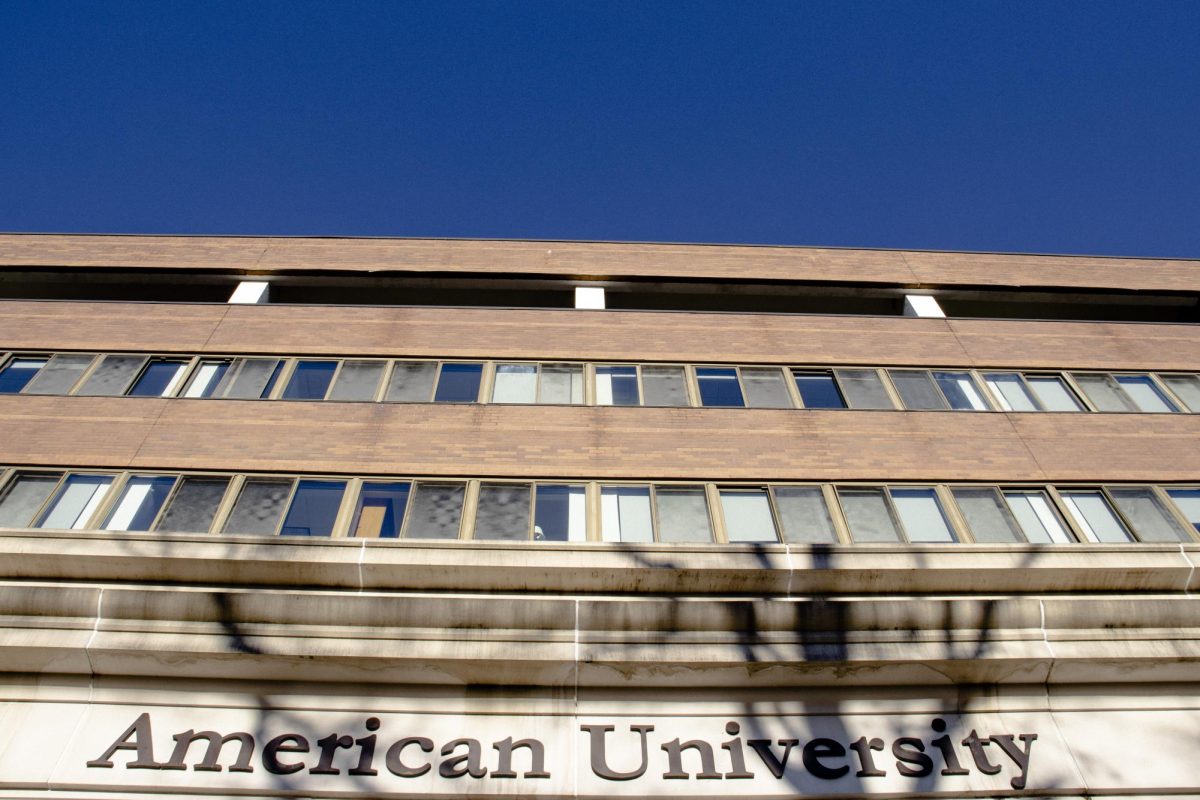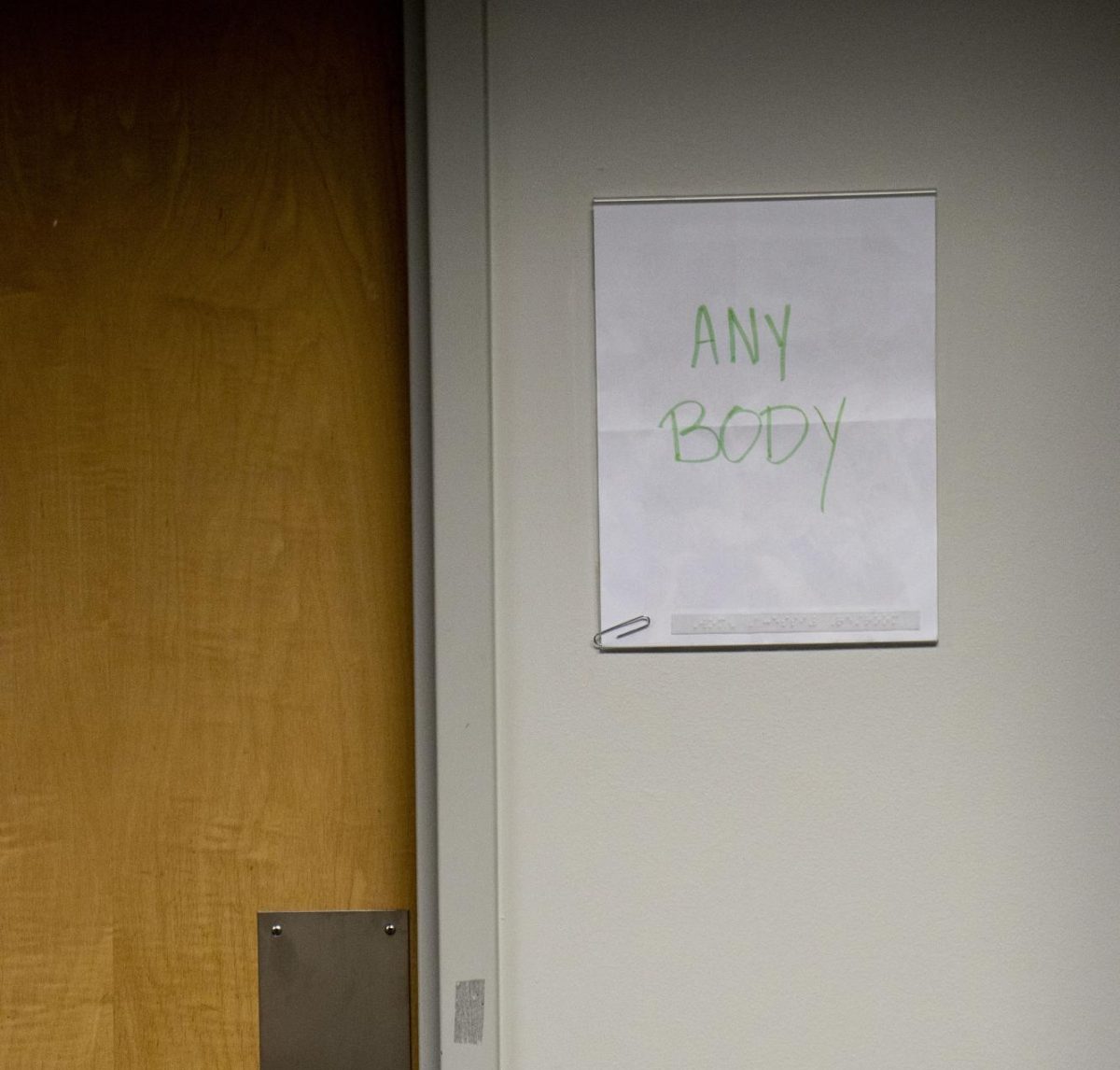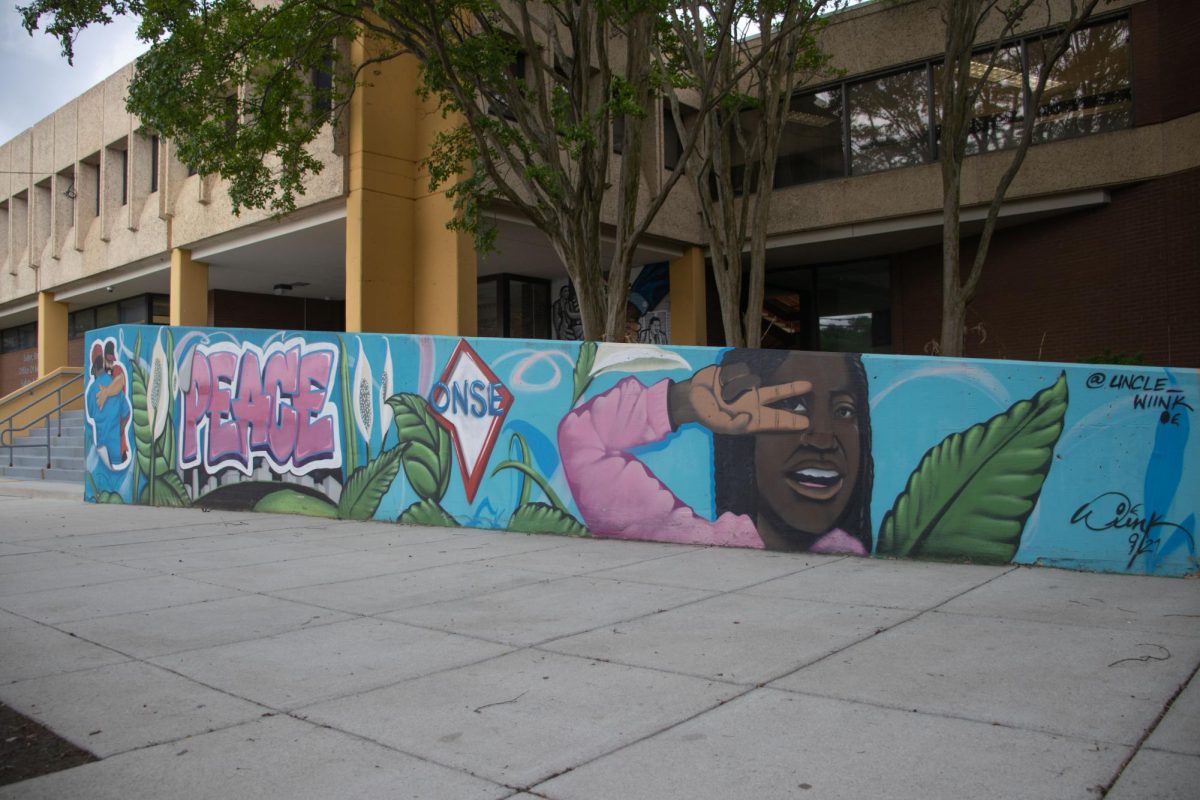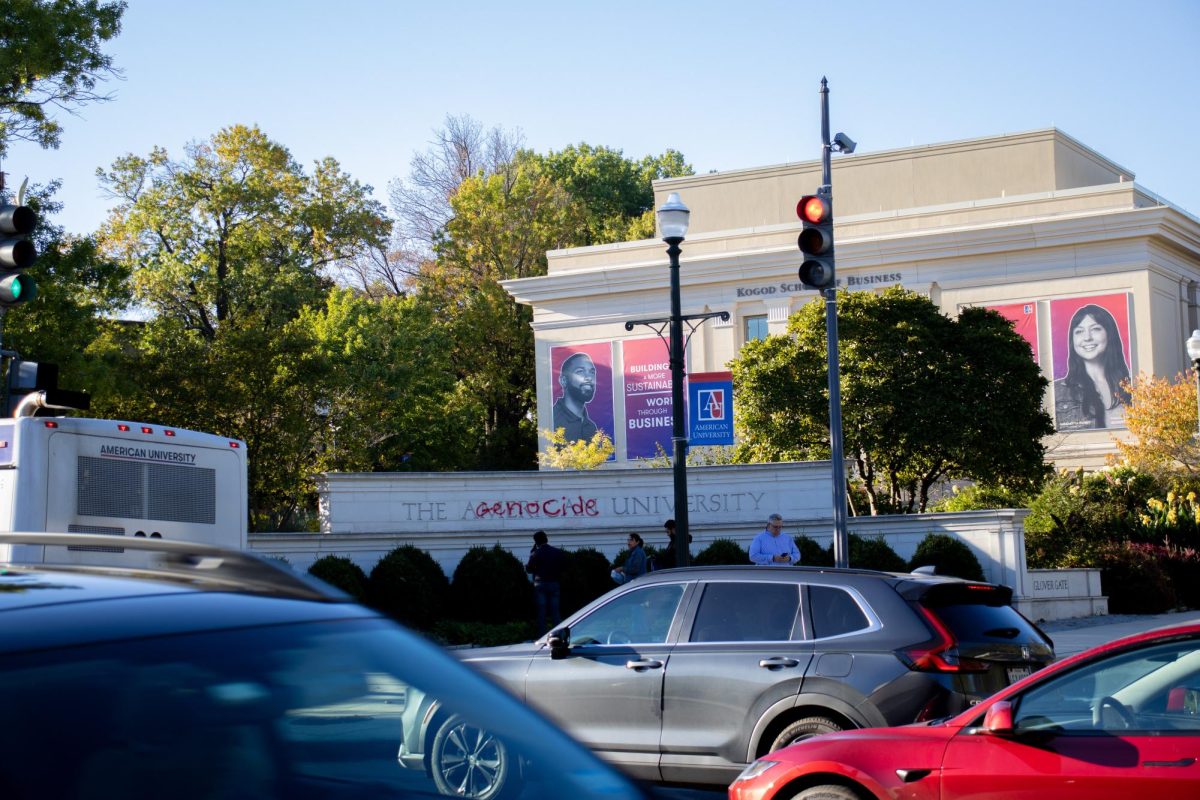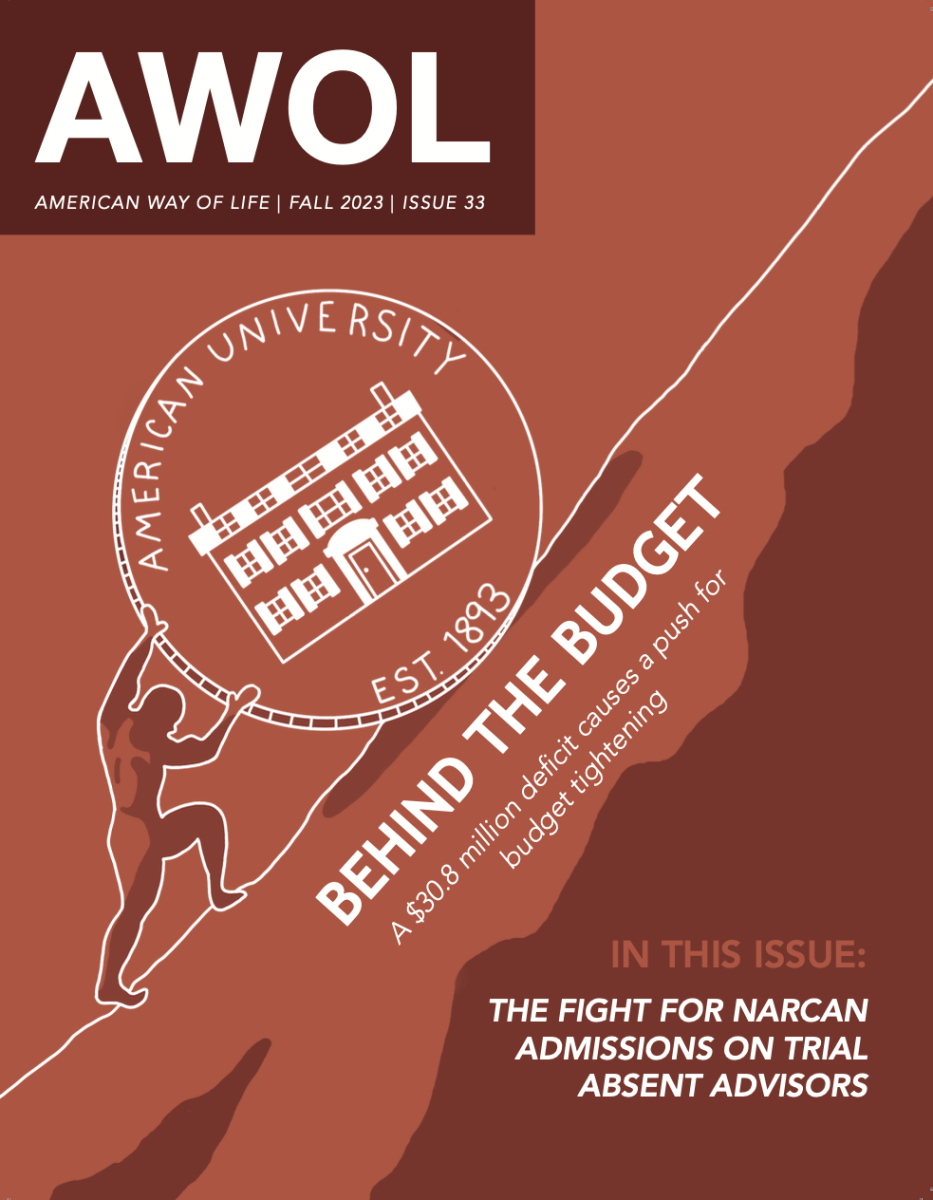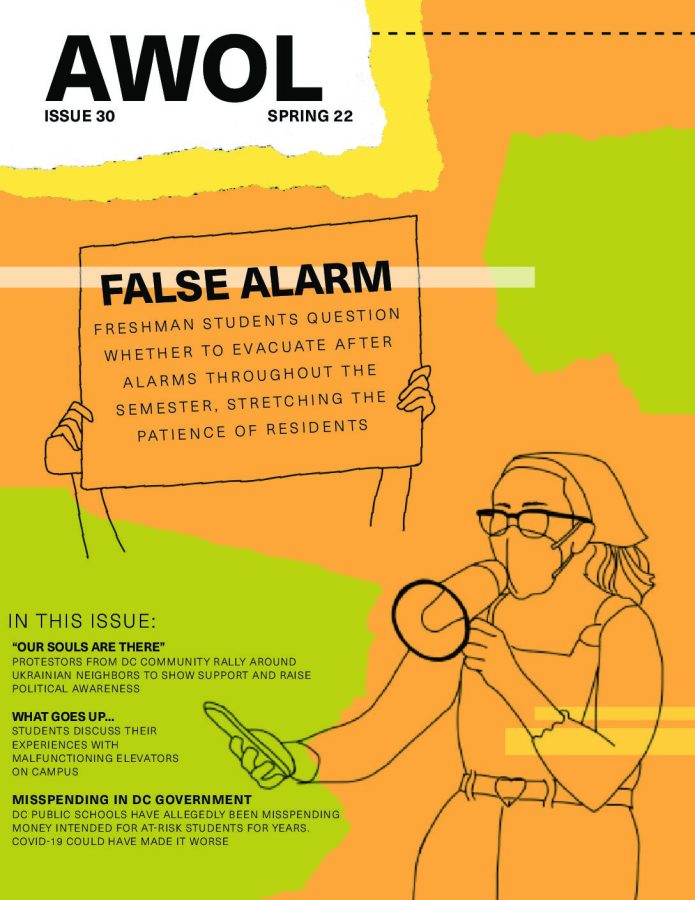Sophomore Raghav Singh scrolls through Fizz, a new anonymous social media app, every day to find jokes and memes. However, amidst the humor, he said he frequently stumbles upon content that disturbs him.
Fizz posts range from talk about new meal plans and memes about campus life to profound topics regarding personal information and intimacy within American University, Singh said.
“You open the app and you’re like ‘Oh my god, look at this. Let’s chat about that,’” he said.
However, Singh said the posts sometimes describe sexual content about personal relationships.
“Someone was talking about how their breasts look and how they were in a fight with their boyfriend, but they wanted to send them a picture because their breasts looked nice,” Singh said.
Posts like that are rare, Singh said.
Fizz allows college students to post anonymous messages that only other students on their particular campus can view, according to Fizz’s website. Students verify an email address associated with their school to join, and once students have joined, they can interact with other verified students with text posts, images, polls and direct messages.
Student ambassadors for the app at AU encouraged other students to use Fizz in September and offered donuts and bucket hats to students who joined, according to freshman Anthony Sandoval.
Sandoval was one of the many who downloaded the app because of how it was advertised on campus.
“The first time I found out about Fizz was, one day, they were at the quad giving out free bucket hats,” Sandoval said. “And then they’d give you a free donut if you followed them on Instagram.”
The rewards excited AU student Kriss Estrada, but the nature of the app gave him pause, he said. When he was a senior in high school, his friends said they had seen Fizz on their college campuses.
Now a freshman at AU, Estrada said he remembers the moment the app was launched on campus.
“Despite the initial hesitation that I felt, I was excited for this new social media platform being added to the AU community,” Estrada said.
Estrada said the app’s anonymity allows students to make posts regarding taboo topics that people wouldn’t talk about in-person.
“I thought to myself, ‘There is potential for great communication, yet also, dangers for things that shouldn’t be posted,’” Estrada said.
Individuals can vote for or against a post, boosting it either towards the top or the bottom of the feed, according to Singh.
Fizz’s community guidelines prohibit bullying, hate speech, false information, impersonation, spam, illegal activity, the promotion of self-harm and obscene content.
However, students may post explicit or harmful content on the app because of their anonymity, Jason Mollica, an AU professional lecturer in the School of Communication, said.
“When you’re anonymous, it gives you a little bit of a feeling of ‘I have a shield around me, I don’t have to necessarily worry about the repercussions that could come unless someone digs deeper and finds out what my IP is,’” Molluca said.
People feel like they can say anything because of the anonymity on the platform, Molluca said. Because of its anonymous nature, Molluca said he’s concerned about Fizz fostering hate speech among students.
“I would say the negative sides are what we see with a lot of platforms,” Molluca said. “Which is negativity, hate, racism, bigotry, things along those lines.”
People may also feel a sense of security in posting inappropriate content if others are doing it, Molluca said.
“I will also say the psychology of it is, ‘Wow, this person’s doing it, I can do it too and I don’t have to worry about being pointed out!’” Molluca said.
AU students are responsible for upholding the community guidelines, such as bullying, hate speech and content deemed inappropriate, according to Fizz’s website. Fizz also hires students from universities as moderators for their respective college communities.
These moderators remove posts they deem in violation of Fizz’s community guidelines, according to Fizz’s website.
Sophomore Finnley Collins is an ex-student moderator of the app, in addition to being a former student ambassador for Fizz at AU.
Collins said he believed Fizz would inherently benefit the student body.
“I was really interested in helping out, especially on the moderation side,” Collins said. “Helping making sure that it’s a safe platform, in a safe community, was really important for me.”
However, as Fizz launched on campus, Collins said he quickly came to the realization that the app’s content was far from what he had expected.
Collins said that Fizz’s opening day promotional posters didn’t advertise what he expected the app to be. Collins said that the poster’s examples of Fizz posts ranged from teasing freshmen and saying they look “test optional” to jokes about masturbation in public spaces.
“If they are advertising this kind of stuff, then they’re not going to let me remove it,” Collins said. “If Fizz is using this, to really sell their app and be like, ‘This is the kind of stuff you can see,’ then they really miss their demographic.”
Collins said he quit his moderation job and uninstalled the app from his phone the day the app launched on campus. Collins said he wanted to fully remove himself from Fizz’s material.
“I didn’t want anything to do with it,” Collins said.
However, Singh said he still has hope for the app. He said it has the potential to become a community space for students.
“I think, especially with our school, we must create a specialized, exclusive place for AU students,” Singh said. “It would be really beneficial to get to know each other on campus and also to delve deeper into understanding each other, our society and our campus.”


